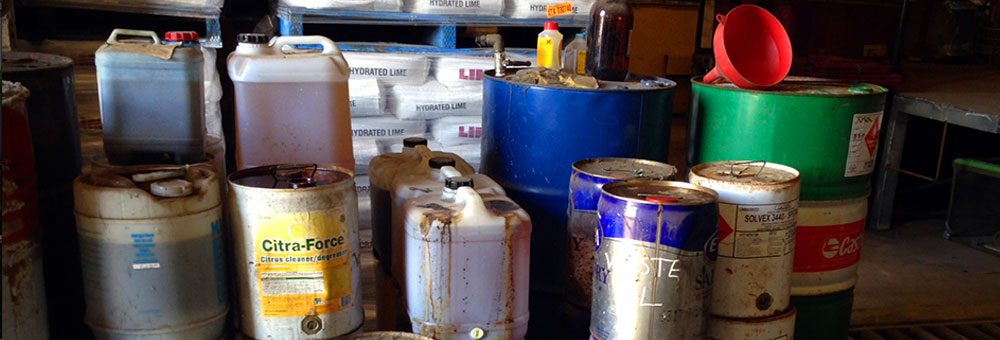Expert Liquid Waste Removal Melbourne: Quick and Budget Friendly Solutions
Expert Liquid Waste Removal Melbourne: Quick and Budget Friendly Solutions
Blog Article
Comprehending the Comprehensive Process of Liquid Waste Disposal: Finest Practices and Environmental Effect Considerations
The management of liquid garbage disposal is a complex concern that calls for an extensive understanding of various best techniques and their connected ecological effects. From the kinds of fluid waste created to the techniques used for collection, therapy, and final disposal, each action plays a vital function in protecting communities and public health. As regulative requirements develop and technology advancements, the conversation around these processes comes to be progressively essential. What ramifications do these modifications hold for future sustainability initiatives, and just how can stakeholders make certain that they are properly addressed?
Types of Liquid Waste
Understanding the numerous kinds of liquid waste is important for reliable monitoring and disposal techniques. Fluid waste can be extensively categorized into numerous kinds, each requiring special handling and treatment strategies.
Industrial liquid waste commonly has unsafe materials, including hefty steels, solvents, and chemicals, created throughout manufacturing procedures. These wastes necessitate strict governing conformity to safeguard human wellness and the setting. Domestic liquid waste mostly refers to wastewater produced from homes, including sewer and greywater, which, although much less poisonous, can still present significant dangers if incorrectly managed.
Agricultural liquid waste, consisting of drainage from ranches, commonly consists of plant foods and pesticides that can result in environmental deterioration otherwise dealt with effectively. Clinical fluid waste, created from health care facilities, consists of contaminated liquids such as bodily liquids and chemicals, needing specialized disposal methods to avoid infection and ecological contamination.
Lastly, oil and grease waste, typically produced by dining establishments and vehicle markets, can create severe clogs in drain systems if not taken care of properly. Comprehending these categories promotes targeted approaches for treatment, conformity with guidelines, and reliable disposal approaches, inevitably advertising environmental sustainability and public wellness safety and security.

Collection Techniques
Reliable collection methods are important for the correct administration of fluid waste, guaranteeing that it is collected safely and efficiently before treatment or disposal. Various techniques are utilized depending on the type of fluid waste generated, the volume, and the specific characteristics of the waste.
One common method is using specialized collection storage tanks or sumps, which are made to record fluid waste at the resource. These systems typically include pumps that facilitate the transfer of waste to bigger storage containers or therapy facilities. Additionally, mobile collection units geared up with vacuum innovation are used in situations where waste is generated intermittently or in hard-to-reach locations.
For commercial settings, closed-loop systems can successfully reduce spills and leakages, allowing for the recuperation and reuse of fluid waste. It is likewise vital to educate personnel on appropriate collection methods to reduce dangers connected with harmful substances.
Additionally, executing normal maintenance timetables for collection equipment guarantees optimal performance and security. The assimilation of advanced surveillance systems can boost collection effectiveness by supplying real-time information on waste levels and prospective dangers. In general, efficient collection techniques are fundamental to lasting liquid waste administration techniques.
Therapy Processes
Therapy procedures play a crucial function in the administration of liquid waste, transforming possibly harmful products right into recyclable resources or safe effluents - liquid waste disposal. These procedures can be extensively categorized right into physical, chemical, and organic approaches, each customized to resolve certain impurities present in the waste stream
Physical therapy approaches, such as sedimentation and filtering, work by removing put on hold solids and particle matter. These techniques are typically the initial step in the therapy chain, successfully lowering the tons on subsequent procedures. Chemical therapies involve making use of reagents to neutralize hazardous substances, speed up heavy metals, or oxidize organic contaminants, consequently Web Site enhancing the safety of the effluent.
Organic therapy procedures, including turned on sludge systems and anaerobic food digestion, profit from the all-natural capacities of bacteria to deteriorate organic matter. These techniques are specifically reliable for wastewater including eco-friendly contaminants. Advanced treatment innovations, such as membrane layer filtering and progressed oxidation processes, are progressively employed to achieve greater levels of filtration.
Integrating a combination of these therapy techniques not just makes sure conformity with regulative standards yet likewise promotes ecological sustainability by recuperating important sources from fluid waste.
Disposal Options
Just how can organizations make sure the accountable and secure disposal of liquid waste? Effective disposal options are vital for guarding public wellness and the setting. The main approaches consist of land treatment, incineration, and disposal followed by discharge into local wastewater systems.
Land disposal entails the mindful control of liquid waste in designated garbage dumps, making certain that it does not leach right into bordering soil or water. Incineration, on the various other hand, subjects liquid waste to high temperature levels, converting it right into ash and gases, which require proper purification to lessen exhausts. This technique is appropriate for hazardous wastes that can not be treated through standard methods.
In cases where fluid waste can be dealt with, organizations might select organic or chemical treatment processes to reduce the effects of damaging parts before releasing the treated effluent into municipal systems. This path normally aligns with regulative demands, guaranteeing that the effluent Continue satisfies safety requirements.
Eventually, companies have to conduct detailed evaluations of each disposal choice to determine its practicality, considering aspects such as waste structure, governing compliance, and prospective dangers to health and the environment. By choosing appropriate disposal techniques, organizations can add to a responsible waste monitoring strategy.
Ecological Impact
The ecological effect of liquid garbage disposal is a critical consideration for companies seeking to lessen their ecological impact. Incorrect disposal techniques can cause significant contamination of water resources, dirt destruction, and damaging effects on neighborhood communities. For circumstances, unsafe fluids can leach right into groundwater, posing threats to drinking water materials and aquatic life. Furthermore, the discharge of without treatment or inadequately treated waste into surface waters can lead to eutrophication, bring about oxygen exhaustion and the subsequent death of fish and other organisms.

To alleviate these effects, companies must take on finest practices such as carrying out rigorous waste treatment processes, advertising recycling and reuse, and sticking to governing criteria. By taking a proactive technique to liquid waste monitoring, entities can significantly lower their ecological footprint while supporting lasting development goals. Eventually, a thorough understanding of the ecological effects associated with fluid garbage disposal is necessary for informed decision-making and liable stewardship of natural deposits.
Verdict
Efficient monitoring of fluid waste is crucial for guarding ecological integrity and public health. By embracing finest methods in disposal, collection, and treatment, along with adherence to regulative standards, the capacity for dangerous contamination of ecosystems can be dramatically lowered. Continual developments in modern technology and processes add to lasting waste monitoring efforts. Ultimately, a thorough understanding of liquid garbage disposal not only reduces ecological effects however also fosters a dedication to liable source management and environmental stewardship.
The monitoring of fluid waste disposal is a multifaceted problem that requires a thorough understanding of numerous best methods and their connected environmental influences. see here From the types of liquid waste created to the techniques utilized for collection, treatment, and last disposal, each step plays a crucial duty in guarding environments and public health and wellness.The ecological impact of fluid waste disposal is a crucial consideration for organizations seeking to decrease their eco-friendly footprint. Eventually, a thorough understanding of the environmental impacts connected with fluid waste disposal is vital for notified decision-making and liable stewardship of natural sources.
Eventually, a detailed understanding of liquid waste disposal not only minimizes environmental influences yet also promotes a dedication to accountable resource management and ecological stewardship.
Report this page